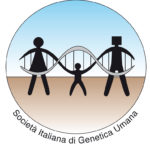
Don’t perform genetic testing for mutations analysis in the 5,10-Methylene TetraHydrofolate Reductase (MTHFR) gene
Since the risk of developing thrombotic events is conferred by the presence of hyperhomocysteinemia, it is considered more useful and valid, from the clinically point of view, consider the value of plasma homocysteine, which is also influenced by several other factors. The subjects heterozygous or homozygous for mutations in the MTHFR gene feel – with inappropriate perception – suffering from a rare genetic disease or being at high risk of thrombotic events. The most recent scientific literature strongly demonstrates the absence of predictive value of this test, both for venous thrombosis, and for other vascular diseases, and major specialized professional organizations advised not to use the test in the clinical practice.
Sources
1. Eldibany MM, Caprini JA. Hyperhomocysteinemia and thrombosis: An overview. Arch Pathol Lab Med 2007; 131: 872–84.
2. Grody WW, Griffin JH, Taylor AK, Korf BR, Heit JA. ACMG Factor V. Leiden Working Group. American College of Medical Genetics consensus statement on factor V Leiden mutation testing. Genet Med 2001; 3: 139–48.
3. Bezemer ID, Doggen CJ, Vos HL, Rosendaal FR. No association between the common MTHFR 677C->T polymorphism and venous thrombosis: Results from the MEGA study. Arch Intern Med 2007; 167: 497–501.
4. Dipartimento Ligure di Genetica (DLG) e dell’Agenzia Regionale Sanitaria (ARS Liguria): Raccomandazioni per l’utilizzo dei test genetici per trombofilia in Liguria. http://www.genetica.liguria.it/documents/determina%20trombofilie%202.pdf
Attention. Please note that these items are provided only for information and are not intended as a substitute for consultation with a clinician. Patients with any specific questions about the items on this list or their individual situation should consult their clinician.


Recent Comments